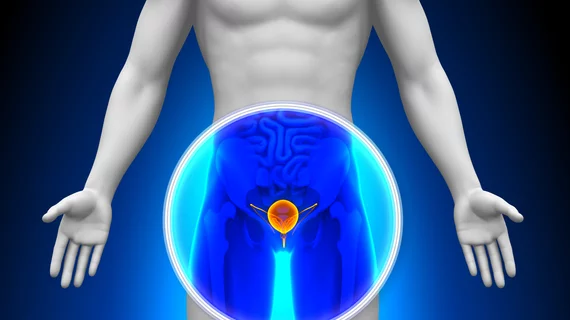ACR publishes new guidance on prostate MRI utilization
The American College of Radiology (ACR) has developed a new guidance document on the use of prostate MRI for working up suspected or known malignancies.
The policy primer, intended to guide policies on a local and national level, comes after a January 2019 analysis in the Journal of the American College of Radiology found that prostate MRI coverage “varies wildly” from one private payer to the next.
“Prostate MRI, also referred to as multi-parametric or bi-parametric MRI depending on the examination protocol, is a diagnostic test intended to detect, localize and characterize primary cancer within the prostate,” according to a statement on the ACR’s website. “It entails obtaining high-resolution MR images of the prostate using multiple tissue contrast mechanisms and in multiple planes. Abnormalities in the prostate detected on the MRI may, in turn, serve as targets for a subsequent MRI-targeted prostate biopsy, often using advanced technologies to direct the biopsy to the area of the abnormality on the MRI.”
The document covers prostate MRI utilization in numerous clinical scenarios, including “biopsy-naïve patients, patients with a prior negative prostate biopsy, and patients with a prior prostate biopsy who are undergoing active surveillance or pre-operative staging.”
The full guidance document is available here. The ACR is also hosting a Prostate MRI Summit on Friday, Sept. 6, in Reston, Virginia, where attendees can ask questions and share comments about this topic.

